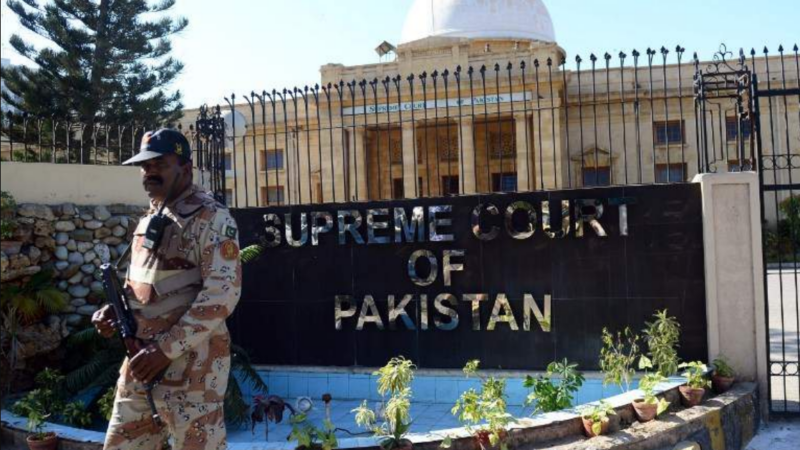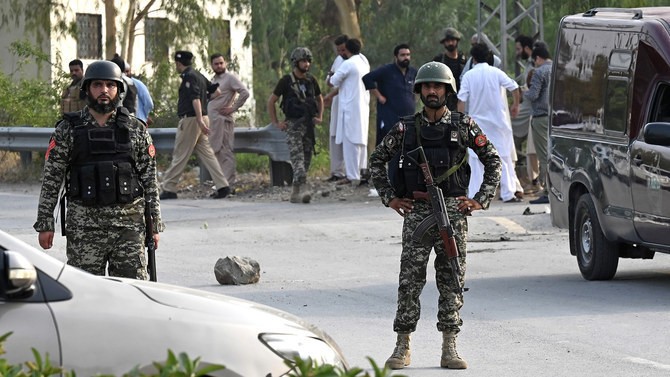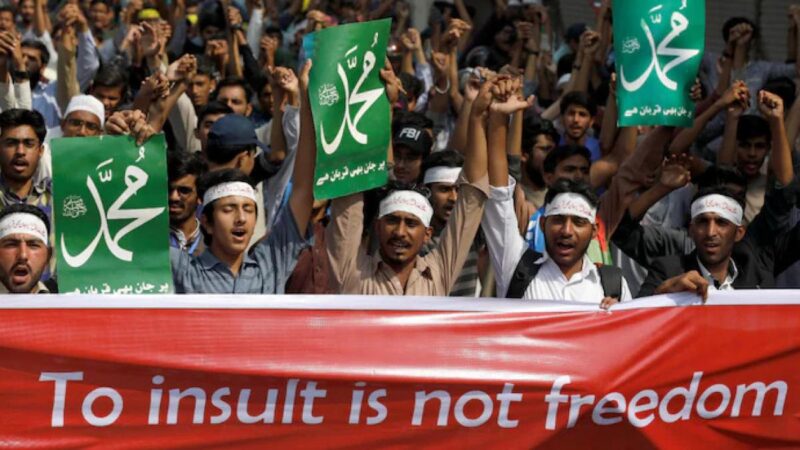FEAR OF JIHADI MILITANCY RESURGENCE IN ARAB STATES

Arab states fear the withdrawal of US troops from Afghanistan and the takeover of the country by the Taliban may lead to a resurgence of Islamist militancy. The concerns were expressed at an extraordinary meeting of intelligence chiefs of 22 Arab states held in Cairo last month.
There is apprehension that the renewed Islamic State-Taliban conflict in Afghanistan may trigger a spill over of the IS fighters to neighbouring countries or plot disturbances in the Middle East.
Arab intelligence is of the view that the Islamist State is already radicalising youth in the Arab world, including Lebanon, to export them to Syria, Iraq and other places where they are required to support local IS fighting groups.
The Arab Intelligence Forum, set up by Egypt this year as a “multilateral intelligence-sharing body”, in its meeting recognised that an Islamic State resurgence is a “reality, as attacks during the past weeks suggest”.
The intelligence chiefs shared information at the meeting of the growing IS-sponsored violence. It was reported that the IS launched several attacks in northern Iraq in early November and even captured a town for 24 hours. Similarly, in eastern Syria, the IS conducted attacks, targeting soldiers and oil workers. Though the IS threat is limited in Lebanon, there are fears of escalation in the coming months.
The Arab world is monitoring the situation especially in Lebanon. This is a relatively recent phenomenon and the IS is learnt to have calculated that the political class in Beirut would find the interference convenient to pursue its brand of politics in the country.
Media reports say: “…any violence would justify postponing the parliamentary elections next year and decrease international pressure to organize them on time. This would help Hezbollah and its allies maintain their current majority in parliament for longer than the four-year term. Second, the political class would expect more regional and international aid to combat the Islamic State, without having to introduce reforms and meet the conditions of international donors.” Analysts say the Islamic State revival and violence would also force the population to back Lebanon’s sectarian leaderships.
RT, the Russia-based television network interviewed a former Egyptian military intelligence officer, Major General Tamer El-Shahawi, in the backdrop of the Cairo meeting. He said: “There is no doubt that there are geopolitical developments that the Arab region has witnessed during the past ten years and are still experiencing their events.”
With none of the Arab governments forthcoming about the specific nature of discussions at the meeting, it was left to El-Shahawi to elaborate on the threats: “The forum’s meetings are at the forefront of the threats facing Arab national security, most notably the dismantling and division schemes on ethnic and sectarian grounds, weakening the national state, increasing foreign interference in the region’s crises, discussing the fight against terrorism, extremist ideology and organized crime, and the best ways to effectively confront these threats in a comprehensive manner.”
Coming in the backdrop of the Cairo meeting, a special report prepared for the Carnegie Middle East Centre on December 7 referred to the IS showing interest in Lebanon. “In recent weeks, Lebanese media reports, mostly based on security sources, have expressed concern about the prospect of attacks by the Islamic State group. In the past year, young men, estimated at 35–40, have left their homes in northern Lebanon to join the ranks of the jihadi group in Syria and Iraq, where they’ve received training and are sending money back to their families.”
Hundreds of people had previously joined the IS from Lebanon, but that was when the Syrian conflict was at its peak. However, intelligence agencies notice a spurt once again. Lebanese media is full of reports of radicalisation of the youth in Lebanon. Recently, the Lebanese military arrested an “Islamic State operative who used the pseudonym ‘Baghdadi’ and was connected to bombing plots”.
The Lebanese fear the new recruits could be trained and allowed to gain experience in the conflict regions of Iraq and Syria and asked to return to Lebanon to plan attacks. In November, a 17-year-old boy “who had been recruited online was arrested and charged with plotting an attack in north Lebanon”.
The recruitment drive by the IS has come at a time when Lebanon is facing its worst economic crisis in which the salaries of even the army and security forces have been hit. Unemployment is at a record high and it is easy to convince jobless youth to take up arms for the jihadi cause by promising them money.
Though the crisis complicates the Lebanese crackdown on new IS recruits, the authorities are still managing to release small batches of youth from the clutches of the terrorist group. The special report explains the situation: “…the security services dealt with the few dozen young men who were stopped from leaving the country to join the group. They were reportedly handed back to their families with a warning, according to sources in the north. One explanation by the security forces is that the youths were motivated less by ideology than by the salaries they expected to earn. Another was more practical: The security forces don’t have the means to manage the recruits once they are placed in the overstretched prison system.”
The authorities are equally worried about the IS radicalising convicts and undertrials in Lebanese prisons, especially the Roumieh prison in east Beirut. This prison is locally called the “operations room” of the IS because of the group’s easy access to the inmates. Recruitment from here has been happening since 2018.
The terror recruitment is, however, not getting any support from the people in Lebanon. The special report said: “Security sources confirm that some families in the north go to the Intelligence Directorate in the army to report the suspicious behavior of their sons. She revealed that more than 35 young people between the ages of 16 and 20 left their homes in the north about a year ago, and later informed their families that they joined ISIS in Syria and Iraq, and that a number of these send money to their families.”






